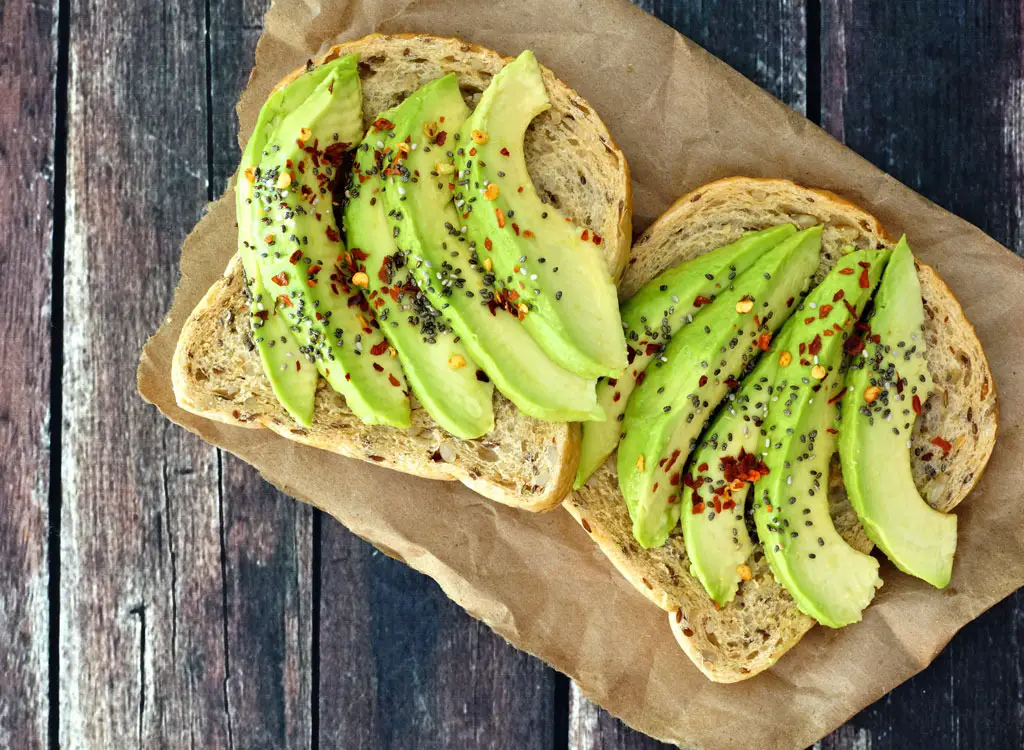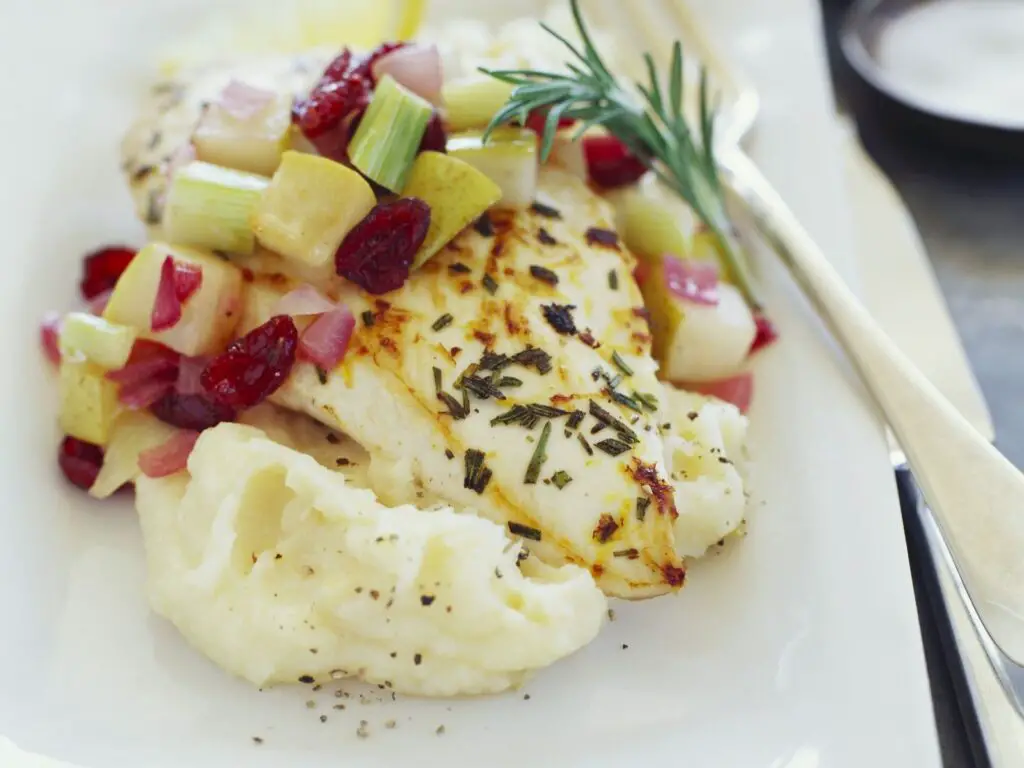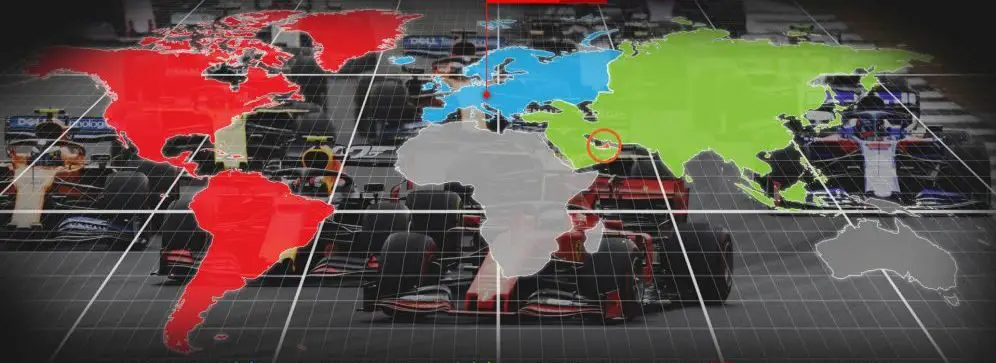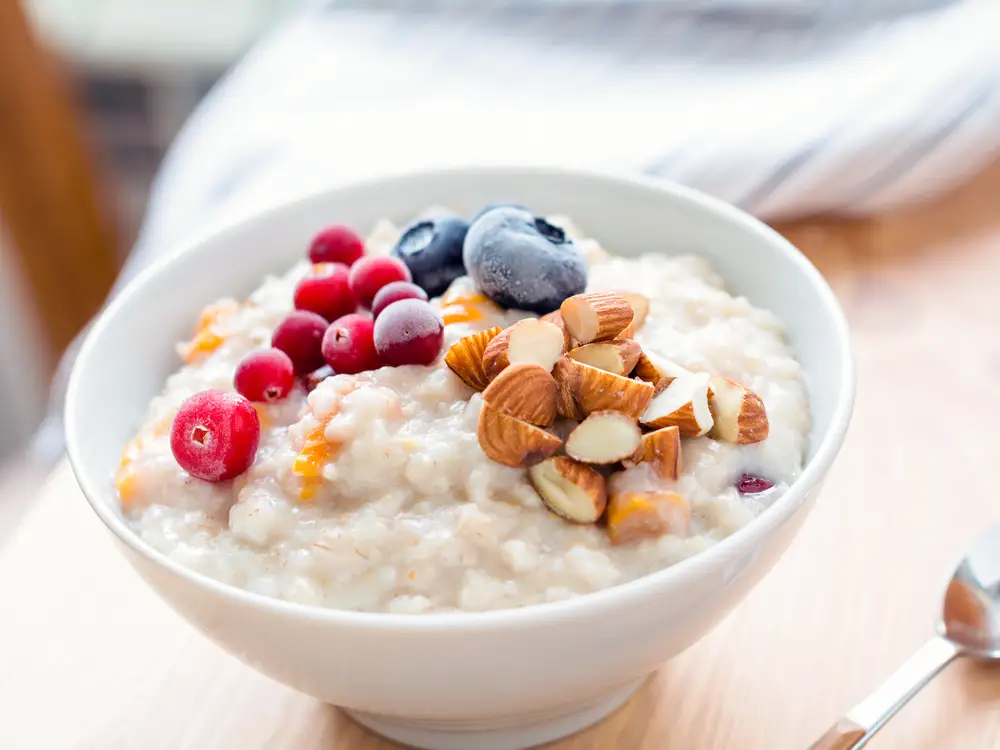F1 drivers are arguably the fittest athletes in the world as they have to ensure a punishing physical and mental demands during a race. You might be surprised to learn just how important their diet is to their success.
They have to cope with punishing G-Forces, intense heat, dehydration while maintaining 100% concentration for the whole length of the race – without a break.
To manage this F1 drivers control their diet fastidiously. They have to ensure that they eat a balanced mix of protein, carbohydrates, fats, vitamins, minerals, and fluids. This provides them with energy, hydration, and nutrients to keep them on top of their game,
In this article, we’ll reveal what F1 drivers eat before, during, and after a race, and how they adapt their diet to different races and seasons. You’ll also discover which F1 drivers are vegan, vegetarian, or pescatarian, and why they chose to follow these diets.
Read on to learn more about the fascinating world of F1 nutrition.
F1worldwide.com Also Recommends
- F1 Driver : The Power of Mental Training in F1 Success
- F1 Driver Training : Get Race-Ready from Your Living Room!
- F1 Young Drivers as Children
- The Surprising F1 Driver Phobias
What do F1 drivers Eat?
There is no one-size-fits-all diet for F1 drivers, as each driver has their own preferences, needs, and goals. However, there are some general principles that most drivers follow to optimize their health and performance.
Breakfast is the most important meal of the day for F1 drivers, as it sets them up for the rest of the day. They typically eat a high-protein breakfast that is fairly light so that they don’t feel bloated before the race. This might consist of things like eggs or protein-rich cereals.

They might also eat some slow-releasing carbohydrates like bread, and healthy fats like avocado.
Some drivers also drink coffee to boost their alertness and metabolism, but not too much as it can cause dehydration and jitters. They also drink plenty of water to stay hydrated throughout the day.
F1 Drivers Diet – Lunch
Lunch is usually eaten a few hours before the race, so it has to be light and easy to digest. Drivers usually opt for lean sources of protein like meat, poultry, or fish, along with vegetables, quinoa, or brown rice for carbohydrates.
These foods provide them with sustained energy and prevent blood sugar spikes and crashes.
Some drivers also eat some fruit or yogurt for dessert, as they provide natural sugars and antioxidants. They avoid foods that are high in fat, salt, or spice, as they can cause indigestion, bloating, or inflammation.
F1 Drivers Diet – Dinner
Dinner is eaten after the race, so it has to be nutritious and satisfying. Drivers usually eat more carbohydrates than usual to replenish their glycogen stores and aid recovery.

They also eat more protein to repair their muscles and tissues. They might choose foods like salad, vegetables, fish, sweet potato mash, or pasta for dinner.
Some drivers also treat themselves to some dessert or alcohol after a race, as a way of celebrating or relaxing. However, they do this in moderation and not too late at night, as they can interfere with their sleep quality and recovery.
F1 Drivers Diet – Snacks
Snacks are essential for F1 drivers, as they help them maintain their energy levels and appetite throughout the day.
They usually snack on foods that are high in protein and low in sugar, such as protein shakes, Greek yogurt mixed with oats, nuts and seeds, cheese, or fruit.
They avoid snacks that are high in calories or processed ingredients, such as chocolate bars, crisps, or cakes.
How do F1 drivers stay hydrated?

Hydration is crucial for F1 drivers, as they can lose up to 3 liters of fluid during a race due to sweating and breathing. Dehydration can impair their physical and mental performance, as well as increase their risk of heat stroke or kidney failure.
To prevent dehydration, drivers drink water throughout the day, especially before and after the race. They also drink electrolyte drinks that contain sodium, potassium, magnesium, and calcium to replace the minerals they lose through sweat.
Some drivers also add glucose or caffeine to their drinks to enhance their energy and focus.
However, drivers have to be careful not to overhydrate themselves either. Drinking too much water can dilute their blood sodium levels and cause hyponatremia, which can lead to nausea, confusion, or seizures.
How Do F1 Drivers Adjust Their Diets For Different Races?

F1 drivers have to adapt their diets according to the different races they compete in throughout the season. They have to consider factors such as the climate, the time zone, the altitude, and the local cuisine of each country they visit.
- In hot and humid races like Singapore or Malaysia, drivers have to drink more water and electrolytes to prevent dehydration and heat exhaustion. They also have to eat more carbohydrates to fuel their muscles and brain.
- In cold and dry races like Russia or Canada, drivers have to drink less water and electrolytes to avoid overhydration and which can lead to nausea, confusion, or seizures.
- In high-altitude races like Mexico or Brazil, drivers have to drink more water and electrolytes to compensate for the lower air pressure and oxygen levels. They also have to eat more iron-rich foods like red meat or spinach to boost their red blood cell production and oxygen delivery.
- In races with different time zones like Australia or Japan, drivers have to adjust their eating and sleeping patterns to avoid jet lag and fatigue. They usually follow a pre-planned schedule that gradually shifts their meals and bedtime to the local time of the race. They also avoid caffeine or alcohol before sleeping, as they can disrupt their circadian rhythm.
How do F1 drivers vary their diets for different seasons?
F1 drivers also have to change their diets according to the different seasons of the year. They have to consider factors such as the weather, the training intensity, and the body composition goals of each season.
What Do F1 Drivers Eat In Winter
In winter, drivers usually eat more calories and carbohydrates to fuel their intensive training sessions and build muscle mass.
They also eat more healthy fats to keep their joints and skin healthy in the cold weather. They might eat foods like oatmeal, nuts, salmon, or chicken for winter.
What Do F1 Drivers Eat In Spring
In spring, drivers usually eat less calories and carbohydrates to shed any excess weight and body fat. They also eat more protein and fiber to keep them full and satisfied. They might eat foods like eggs, yogurt, salads, or turkey for spring.
What Do F1 Drivers Eat In Summer
In summer, drivers usually eat more fruits and vegetables to stay hydrated and refreshed in the hot weather. They also eat more antioxidants and vitamins to boost their immune system and prevent infections. They might eat foods like berries, watermelon, spinach, or oranges for summer.
What Do F1 Drivers Eat In Autumn
In autumn, drivers usually eat more complex carbohydrates and spices to keep them warm and energized in the cooler weather. They also eat more iron and zinc to support their blood health and wound healing. They might eat foods like pumpkin, cinnamon, lentils, or beef for autumn.
Are Any F1 Drivers Vegan?

According to the web search results, the most prominent F1 driver who is vegan is Lewis Hamilton, the seven-time world champion. He has been following a vegan diet since 2017, and has credited it for improving his health, performance, and environmental awareness.
He has also encouraged his fans and followers to adopt a plant-based lifestyle for ethical and ecological reasons.
Hamilton is not the only vegan F1 driver, though. His former team-mate Nico Rosberg, who retired in 2016 after winning the world title, also switched to a vegan diet in 2018.
He said he was inspired by Hamilton and by watching documentaries about the meat industry and its impact on the planet.
Another vegan F1 driver is Lando Norris, who drives for McLaren. He revealed his dietary choice in 2020, saying he had been vegan for about a year. He said he made the decision for health and environmental reasons, and that he felt better and more energetic since going vegan.
These are the only F1 drivers who are known to be vegan at the moment, but there might be others who prefer to keep their diets private. There are also some drivers who are vegetarian or pescatarian, such as Sebastian Vettel, Charles Leclerc, and Sergio Perez.
Average F1 Driver Height And Weight
All of the dietary and lifestyle measures taken are designed to control the drivers weight and general fitness levels.
To see the Average F1 Driver Height And Weight follow this link
Conclusion
F1 drivers follow a rigorous diet that helps them cope with the physical and mental challenges of racing.
They have to eat a balanced mix of protein, carbohydrates, fats, vitamins, minerals, and fluids to provide them with energy, hydration, and nutrients.
They also have to adapt their diet according to the different races and seasons they compete in throughout the year.
F1 drivers are not only fast on track, but also smart in the kitchen. They know what to eat and when to eat it to optimize their health and performance. By following their example, we can also improve our own well-being and productivity.
References
- Lewis Hamilton Diet: Check Out His Secret Weapon (f1worldwide.com)
- Alex Albon Height Is Not A Hindrance (f1worldwide.com)
- Fernando Alonso Height and Weight (f1worldwide.com)
- The Surprising Truth About Pierre Gasly Height (f1worldwide.com)
- Zhou Guanyu Height And Weight (f1worldwide.com)
- How Tall Is Charles Leclerc? How He Compares to Other F1 Drivers (f1worldwide.com)
- Lando Norris Weight: How the F1 Driver Keeps Fit and Fast (f1worldwide.com)
- Esteban Ocon Height and Weight Secrets (f1worldwide.com)
- Oscar Piastri Height: How Does He Measure Up? – F1Worldwide.com
- Daniel Ricciardo Height – How Tall Is the Smiling Assassin? – F1Worldwide.com
- George Russell Height: How He Stacks Up Against Other F1 Drivers (f1worldwide.com)
- Carlos Sainz Height And Weight: (f1worldwide.com)
- Logan Sargeant Height and Weight (f1worldwide.com)
- Lance Stroll Height and Weight (f1worldwide.com)
- Yuki Tsunoda Height And Its Impact On His Racing Career (f1worldwide.com)
- Max Verstappen Height And Weight Advantage – The Secrets Behind (f1worldwide.com)
- F1 driver training: What’s their workout regime, diet, cardio & more

